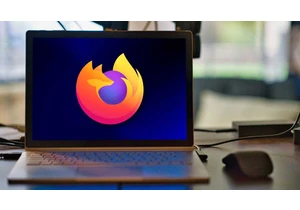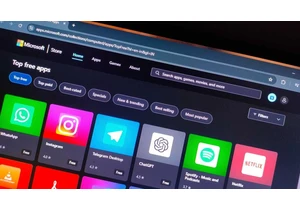Arm-powered Windows devices, based almost entirely on the Qualcomm Snapdragon family of processors so far, are pretty neat. They can be thinner and lighter than Intel- and AMD-based setups, and they last considerably longer on battery power. Yet while most of the Arm compatibility issues are solved either with native apps or good emulation, gaming is still a very visible weakness.
That might be going away soon, according to Chris Bergey, a senior VP of Arm Holdings. In an interview with PC Gamer, Bergey says the core compatibility issues are largely resolved, even if the performance gap that gamers are so keenly observing hasn’t been closed. Most users spend approximately 90% of their time in apps that are available with a native Arm version.
A notable and extremely visible exception is anti-cheat programs for some popular online games. Lack of compatibility with these complex (and often controversial) systems can make a game simply refuse to launch, whether or not it runs well on a processor from Qualcomm or another Arm licensee. The software is “actually looking for some registers… well those registers don’t exist in the architecture,” explains Bergey. Though Arm and Microsoft are working on the issue, problems persist. There are some indicators that major developers, like Fortnite maker Epic, are looking to expand compatibility with Arm-based Windows laptops.
Anti-cheat compatibility issues are also one of the most frequent reasons why Windows-based games can be incompatible with the Steam Deck, which runs an AMD processor but the Linux-based SteamOS doesn’t have native versions of some popular anti-cheat systems. It’s an illustration of how complex many modern games have become, especially when online multiplayer is thrown into the mix.
Bergey thinks that as Arm-based Windows devices become a larger part of the market, game developers will put in the work to support them. With more and more games being made available on consoles, PC, and mobile, not to mention systems like Unreal and Unity working for all of them, it makes sense. I’ll add that getting a game up and running on Arm for Windows might help with macOS compatibility too, since all new Apple computers have used Arm-based chips for years.
I’d be interested to see what an Arm-based Windows handheld would look like. Almost every device that’s followed in the Steam Deck’s footprints has used AMD guts, but mobile Arm-based chips are used for smaller emulation-focused devices, often running Android on the higher end. Throwing Windows and Steam on one of these things, especially with a long battery life and perhaps a slimmer, more efficient version of Windows 11, could be a game changer.
https://www.pcworld.com/article/2809188/arm-says-windows-game-compatibility-is-up-to-developers.html
Войдите, чтобы добавить комментарий
Другие сообщения в этой группе

TL;DR: Turn complex projects into simple tasks with

Copilot Vision is one of those Windows features that deserves more at
Over the past several months, the question surrounding Google’s next

You probably already have a trusty flash drive in your office drawer,

With the latest update to Firefox 142, Mozilla is once again introduc

Until now, it was always possible to disable automatic app

